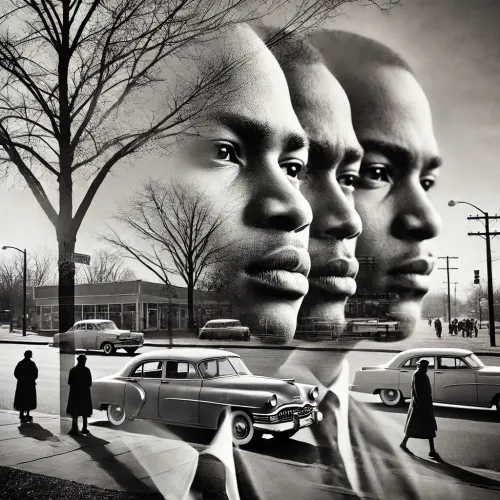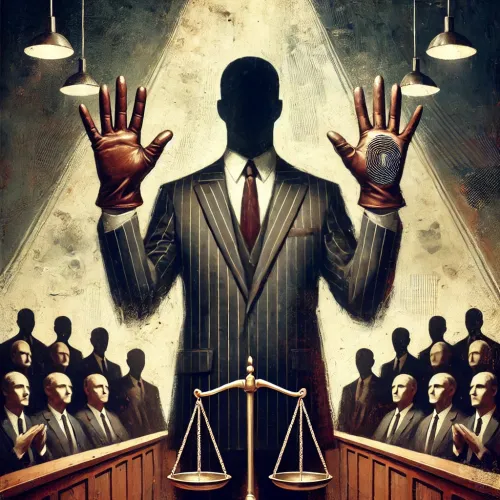The American jury system is a cornerstone of democracy, designed to empower citizens to safeguard justice by independently evaluating evidence, law, and fairness. Yet, this role is increasingly undermined by judicial tools like gag orders and contempt charges, which suppress discussion of jury nullification. These measures create a chilling effect that stifles transparency, silences dissent, and limits the jury’s ability to act as a check on unjust laws.
Gag orders are often issued by judges to prevent parties in a trial from making public statements that could influence proceedings. While intended to protect the integrity of the judicial process, these orders frequently go beyond their original purpose. In cases involving jury nullification, gag orders prevent defendants, attorneys, and advocates from discussing the jury’s right to acquit based on conscience. This restriction ensures that jurors remain unaware of their full authority, forcing them to apply laws without questioning their morality or fairness.
Judicial contempt rulings exacerbate this suppression by targeting individuals who attempt to educate jurors about nullification. Activists distributing literature outside courthouses, such as those from the Fully Informed Jury Association (FIJA), have faced arrests and legal penalties for jury tampering, even when their materials are purely informational. These actions send a clear message: discussing jury nullification is forbidden, even though jurors have the undisputed right to exercise it.
The chilling effect created by gag orders and contempt rulings extends far beyond individual cases. By silencing discussion, these measures undermine public awareness of the jury’s vital role in resisting unjust laws. Historical examples illustrate the necessity of nullification as a tool for justice. During the 19th century, Northern juries refused to convict individuals who violated the Fugitive Slave Act, effectively nullifying laws that perpetuated slavery. Similarly, during Prohibition, jurors frequently acquitted defendants charged with alcohol-related offenses, hastening the repeal of the 18th Amendment. These acts of defiance were possible because jurors understood their power to prioritize justice over legality.
In modern contexts, jury nullification remains a critical safeguard against systemic injustice. Harsh mandatory minimum sentences for nonviolent drug offenses, laws criminalizing homelessness, and statutes targeting marginalized communities highlight the need for juries to act as a conscience for the community. Yet, gag orders and contempt charges ensure that jurors remain unaware of their right to nullify, perpetuating the enforcement of laws that lack public support or moral legitimacy.
Critics of nullification argue that it undermines the rule of law by allowing jurors to substitute personal beliefs for legal standards. However, suppressing nullification erodes trust in the justice system by prioritizing rigid adherence to statutes over fairness. Laws are not infallible; they are human constructs subject to bias, error, and societal change. Nullification offers a necessary check, ensuring that the legal system evolves alongside community values.
The use of gag orders and judicial contempt to suppress discussion about nullification consolidates power in the hands of judges and prosecutors. This shift undermines the jury’s independence, transforming jurors from active participants in the pursuit of justice to passive enforcers of the state’s will. This imbalance erodes the democratic nature of the jury system, which is meant to reflect the conscience and values of the community.
Furthermore, the suppression of nullification raises serious First Amendment concerns. Restricting speech about jury rights limits public discourse on critical issues of justice and accountability. Activists, attorneys, and defendants have the right to discuss the jury’s full authority, including its power to nullify. Silencing these voices not only undermines individual rights but also weakens the collective ability to challenge systemic injustices.
Reforming these practices is essential to preserving the integrity of the jury system. Courts should reconsider the use of gag orders in cases where they suppress legitimate discussion of jury nullification. Activists and organizations seeking to inform jurors about their rights should be protected from prosecution, provided their actions do not directly interfere with the deliberative process. Judges should also embrace greater transparency by acknowledging nullification as a legitimate function of the jury.
Educating jurors about their rights is another crucial step. Current practices often discourage jurors from considering the morality of the law, framing their role as narrowly applying statutes. This approach denies jurors the opportunity to serve as a check on government power and deprives defendants of a fair trial. Incorporating information about nullification into civic education and legal proceedings would empower jurors to fulfill their role as independent arbiters of justice.
The chilling effect of gag orders and judicial contempt does more than silence speech—it weakens the foundation of the jury system. By preventing discussion of nullification, these measures deny jurors the knowledge they need to challenge unjust laws and uphold fairness. Restoring open dialogue about nullification is not a threat to the rule of law; it is a reaffirmation of the jury’s democratic purpose.
In a system that values justice, jurors must be empowered to act as the conscience of the community. Gag orders and contempt charges that suppress nullification discussions betray this principle, prioritizing control over fairness. To protect democracy and ensure the legal system serves the people, we must defend the right to discuss and exercise jury nullification. Only then can the jury system remain a meaningful safeguard against oppression and a defender of justice.




